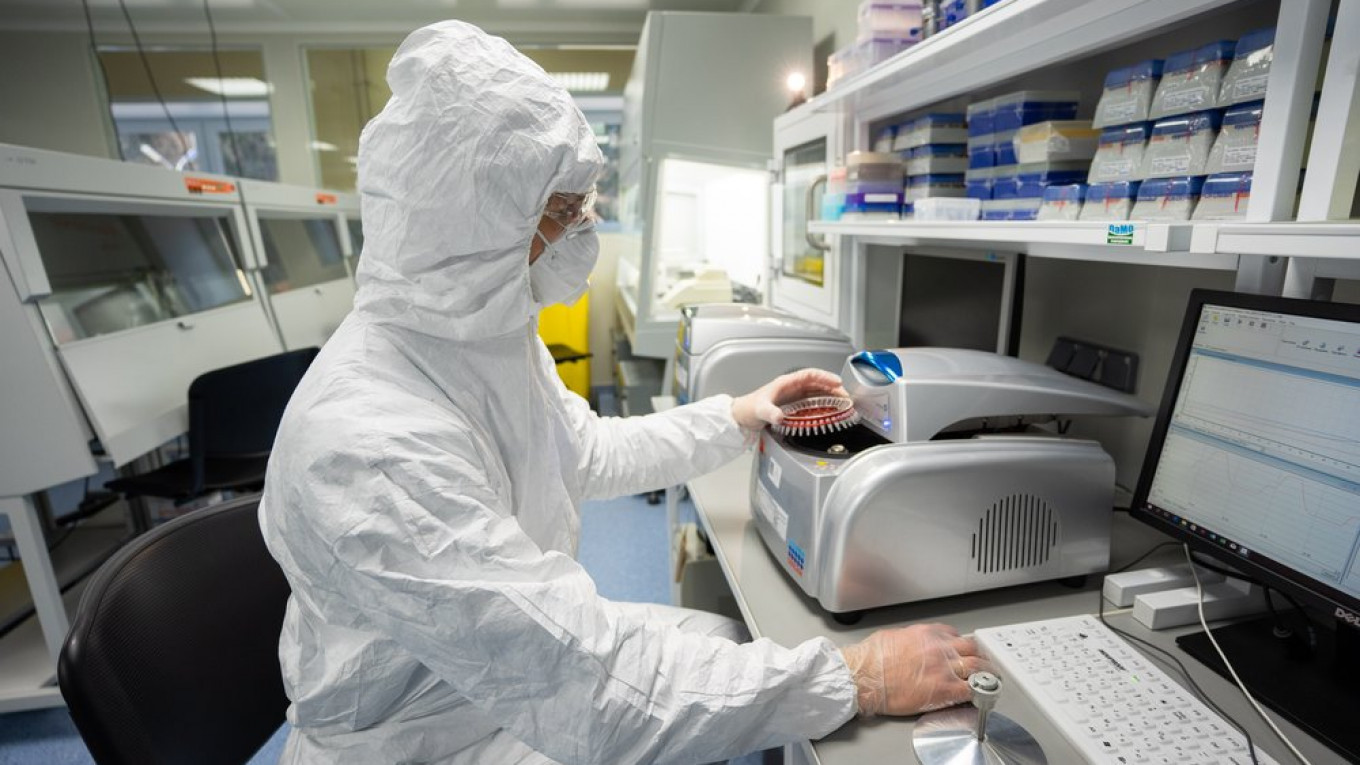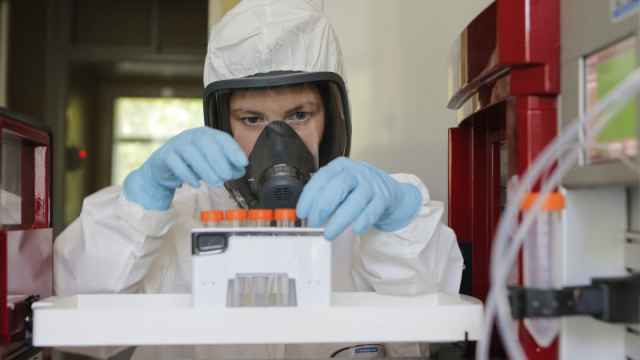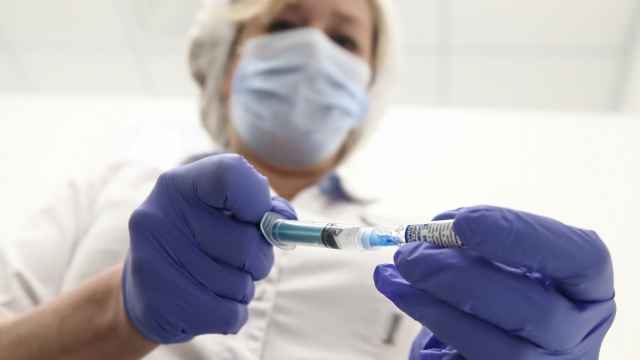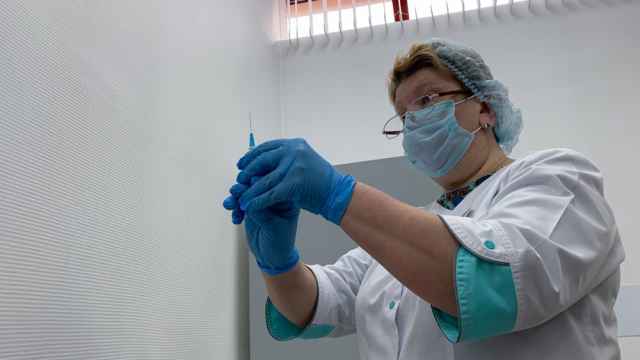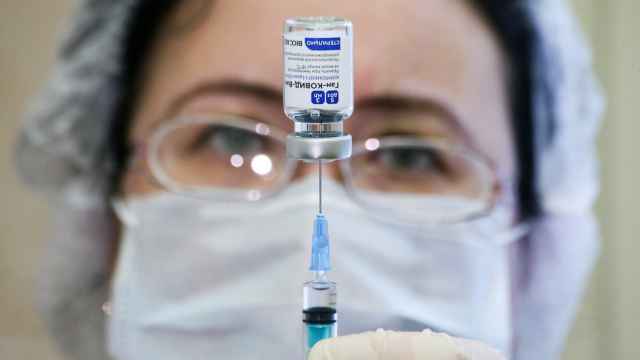An international group of scientists has reiterated “serious concerns” over what they call a lack of transparency, missing data and questionable findings in the clinical research behind Russia’s homemade Sputnik V vaccine.
In an open letter to The Lancet — the leading medical journal which published Russia’s interim research showing an efficacy of 91.6% for the coronavirus jab — published Wednesday, scientists blasted the vaccine’s developers for “data discrepancies,” “numerical inconsistencies” and “substandard reporting” of the clinical trial results.
Russia’s Gamaleya Research Institute, which developed the jab, has disputed the claims, stating that its research “fully complies” with international clinical trials standards and that “the safety and immunogenicity of the Sputnik V vaccine has been confirmed in multiple studies.”
The concerns — some of which remain unaddressed since Russia’s first published early-stage research into Sputnik V last year — come as Russia is seeking a prized authorization by the European Medicines Agency (EMA), whose inspectors have also completed a special ethics probe into the research which underpinned the vaccine.
Phase 3 trials, published in February, showed the jab had a 91.6% efficacy based on more than 21,000 volunteers divided into groups of those who received the jab and a placebo. The Russian Direct Investment Fund (RDIF), which is marketing and funding the vaccine, has since said it has a real-world effectiveness of 97.6% — a claim heavily criticized by scientists and statisticians.
Some 65 countries have authorized Sputnik V for use, but its global rollout has not been without controversy.
Argentina and Hungary have been among the jab’s most vocal overseas supporters, publishing data showing its superior effectiveness compared to other vaccines. After previously rejecting a batch of Sputnik V jabs received from Russia, Slovakia said Wednesday that it will start administering the vaccine in June. Brazil’s regulator last month rejected the vaccine after reviewing documentation which said the jab carried a live version of adenovirus, a common cold-causing virus.
‘Peculiar results’
In this week’s letter to The Lancet, the group pointed to “very peculiar” and “highly coincidental results” in terms of the jab’s efficacy across different age cohorts, noting limited variance of between just 90% and 92.7% across the five age bands studied.
In a response published simultaneously in The Lancet, Gamaleya defended the efficacy findings, stating: “The homogeneity of the values only confirms the fact that … the effectiveness of the vaccine does not differ between age groups.”
The letter was authored by nine scientists and academics from institutions in Russia, the U.S., France, Italy and the Netherlands. The group — led by Temple University’s Enrico Bucci, who has raised concerns about the research underpinning Sputnik V on multiple occasions — also criticized Russia for ignoring requests to share the study’s underlying data.
“We have a serious concern regarding the availability of the data from which the investigators draw their conclusions,” they wrote. “We have made multiple independent requests for access to the raw dataset, but these were never answered. Data sharing is one of the cornerstones of research integrity. It should not be conditional.”
The Gamaleya Institute said it will only make full data available once the study is complete and once it has the approval of various stakeholders, “including a so-called security department.”
The institute did not publish any additional data in its response to the scientists’ claims. The group has called on The Lancet itself to “clarify the consequences of further denying access to the data needed for assessing the results presented.”
The published results are also vague in terms of the testing regime used to detect Covid-19 among the clinical study participants, the scientists said, claiming that “the way cases of suspected Covid-19 were defined could have led to bias in PCR testing used to assess the number of confirmed Covid-19 cases, which is crucial for the efficacy determination.”
Sputnik V’s developers countered that in cases when it was suspected that a participant had contracted the coronavirus, they “were assessed according to Covid-19 diagnostic protocols, including PCR testing.”
Another concern cited in the open letter were mismatches in the number of volunteers reported throughout the trial and no explanation of why almost 14,000 screened volunteers were excluded from the study. “With such inconsistencies, we question the accuracy of the reported data,” the scientists said.
Denis Logunov, Gamaleya’s deputy research director, said: “Some of the volunteers were screened and had not yet been randomized at the time of the snapshot, and others were excluded according to the exclusion criteria or did not meet the inclusion criteria.”
Other numerical inconsistencies in the original study were the result of “simple typing errors,” he added.
A Message from The Moscow Times:
Dear readers,
We are facing unprecedented challenges. Russia's Prosecutor General's Office has designated The Moscow Times as an "undesirable" organization, criminalizing our work and putting our staff at risk of prosecution. This follows our earlier unjust labeling as a "foreign agent."
These actions are direct attempts to silence independent journalism in Russia. The authorities claim our work "discredits the decisions of the Russian leadership." We see things differently: we strive to provide accurate, unbiased reporting on Russia.
We, the journalists of The Moscow Times, refuse to be silenced. But to continue our work, we need your help.
Your support, no matter how small, makes a world of difference. If you can, please support us monthly starting from just $2. It's quick to set up, and every contribution makes a significant impact.
By supporting The Moscow Times, you're defending open, independent journalism in the face of repression. Thank you for standing with us.
Remind me later.


